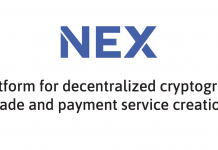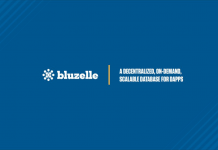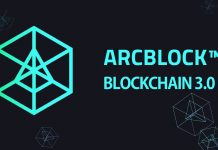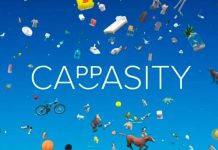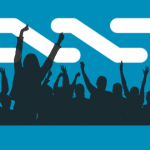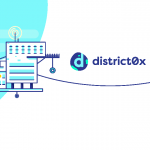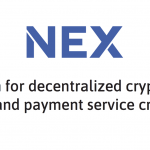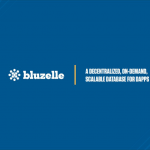PROJECT OVERVIEW.
ICO date: TBA.
Akasha is a new social network that allows users to profit from the popularity of their posts. The project aims to be a censorship resistant internet publishing site with many of the features found on traditional social media apps.
Users can post entries on Akasha which other users can read, upvote or down vote, and comment on. Users can also create simple profiles, chat, and follow other users.
BACKGROUND.
In the late 80s and early 90s, internet pioneers, thinkers, visionaries, artists, entrepreneurs, and everyone in between, imagined a world of no hierarchy, no authority, no distinction between rich or poor, black or white, male or female.
But the internet gradually became more filtered, hierarchical, with more authorities involved and more distinctions. Instead of a flat and decentralized world of the mind with no single point of failure, we now largely gather in centralized websites which suddenly find themselves yielding immense power.
Take Google, the main gateway to the internet for most users. From a garage start-up in the late 90s, they have now grown to become one of the richest corporation on earth. Their ambitions have grown in kind to the point where the company has recently renamed itself to Alphabet, indicating their awareness or aim to have full control over the basic blocks of speech, the a-b-c itself.
If Google wished or was so inclined, with just a click they could erase entire topics, subjects, ideas, and since no one can tell as their algorithms are a closed guarded secret rather than being open source, they would be able to do so effectively for the vast majority of people. More subtly, what they rank on the first page for any given search term significantly influences what knowledge and information we access. We have no way of knowing if they are doing so fairly or in a manipulative manner.
All this combines to give Google monopolistic power at an unimaginable scale which has been used either to uncontroversially comply with laws, or, quite worryingly, to censor, to the point where they have an entire Wikipedia page on the topic.
Facebook, which has more users than any country on earth has citizens, has been criticized for manipulating trending stories with a campaign seemingly ongoing to pressure them to censor what has been named as “fake news,” a loose and subjective term that can easily be used to outright censor.
Twitter does not even pretend to refrain from censorship, so banning users in a way that appears to be politically motivated. Reddit has gone even further. Following the election of Trump, Steve Huffman, Reddit’s CEO, altered the text of comment posts made by a number of Trump supporters on the 23rd of November 2016, reminding us of a centralized power we had forgotten, the ability of administrators to not just delete information, but change it at will, potentially with no one noticing.
Akasha’s main goal is to emancipate the user from the major third party companies through a decentralised platform.
HOW IT WORKS.
As a decentralized application Akasha deploys a next-generation information architecture born from the fusion of Ethereum and the Inter-Planetary File System. IPFS is a new data sharing system which works much like BitTorrent with your content stored locally.
By utilizing IPFS, the infrastructure of Akasha will reportedly have no central point of failure or bandwidth issues. Additionally, using the Ethereum network as a backdrop, the project doesn’t depend on servers.
AETH TOKEN USES.
- Used to vote for people who post popular posts. Voting enables the content creators to understand “how much” people appreciate/don’t appreciate a particular thing/topic/etc. This gives an incentive for people to create great content in a way that Facebook, Twitter, and Reddit do not. It also gives the users a way to profit from the network instead of just providing their content for free, while Facebook, Twitter, or Reddit profit by selling ads.
ROADMAP.
Q3/Q4 2015: Proof of Concept R & D. The first prototype was developed in Meteor, testing along the way various technology stacks in the search for the one that best fits our needs.
Q1 2016: MVP tech stack chosen. After weighing the available options we decided to take the route of a standalone DApp built with Electron, React with Redux and Node.js.
May 3rd 2016: AKASHA unveiled. We celebrated World Press Freedom day by unveiling the AKASHA project to the world at large, opening at the same time the signups for the alpha release.
Q4 2016: Sending alpha invitations. We started to gradually send the AKASHA invites for Windows, MacOS and Linux users, with the initial feedback being overwhelmingly positive.
Q1 2017: Evolution and growth. Following the successful initial release we are implementing more modules and features, incorporating at the same time the Community feedback as we go.
Q2 2017: Building bridges. An AKASHA web version will be introduced and we’ll begin exploring possible integrations with various projects living on the Ethereum network.
Q2/Q3 2017: Open source release synced with breakathon. Once we reach the beta milestone we plan to open source the code powering AKASHA and run a community breakathon to find and fix the bugs that might have slipped by us during the development phase.
Q4 2017: AKASHA one, main Ethereum network launch. Depending on our findings during the beta release and breakathon we will prepare for the Ethereum main network launch.
2018: History in the making. After the AKASHA one main network launch, we will integrate with various services and projects while continuing to incorporate the Community feedback as we go.
HOW ADVANCED IS IT?
The alpha software release is open for anyone to download and try out, but there are plenty of rough edges. The app is slow, IPFS won’t start sometimes, there is no way to search for tags, there is no way to sort posts by upvote, you can’t upvote comments, etc.
SIMILAR PROJECTS.
Steemit.
It seems that a major competitor is another social network called Steemit, who created an entirely separate blockchain instead of integrating with Ethereum like Akasha. Besides that difference, the two social networks seem to have similar features. Steemit looks much more polished and established, but Akasha could bridge the gap in time.
Synereo.
Synereo is a blockchain-based technology stack. According to its developers, Synereo enables applications, sites and web-services to operate without relying on centralized servers, effectively transforming how the Internet works.
Yours network.
Yours network seeks to monetize all other networks on the Internet. More aptly put — no matter where on the web the content comes from, Yours will be the destination for where you come to monetize that content. —Yours will allow you to take content you put online, and create a separate channel for you to get the $ you really deserve for your creativity.



